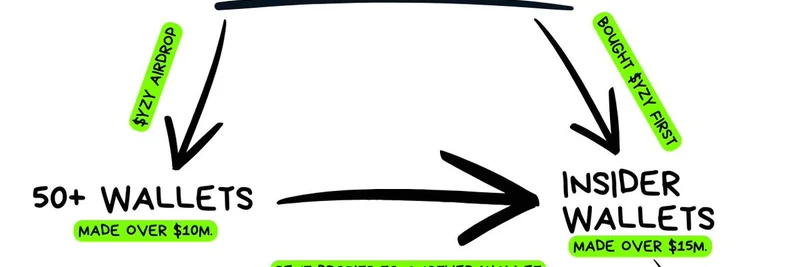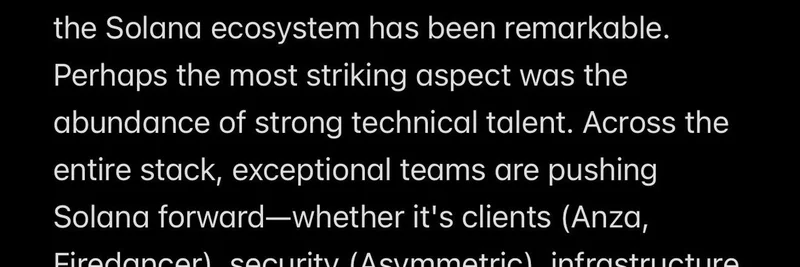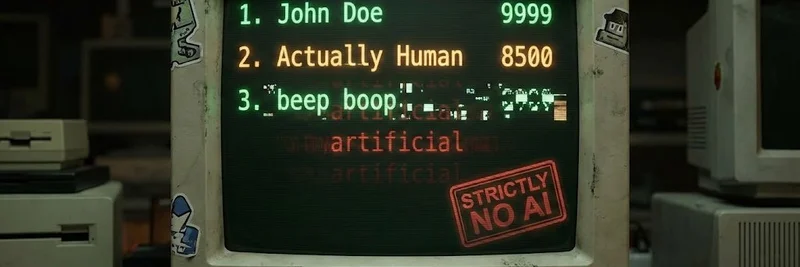In the wild world of Solana meme coins, where fortunes can flip faster than a pancake, a new scandal has erupted that's got everyone talking. The $YZY token, seemingly tied to celebrity hype, turned out to be a textbook case of a bundled launch scam. Thanks to on-chain sleuth @FabianoSolana, we've got the inside scoop on how this played out. If you're dipping your toes into meme tokens, this is a must-read wake-up call.
What Happened with $YZY?
According to the original thread on X, Fabiano dove deep into the on-chain data and uncovered a scheme that's as brazen as it is profitable—for the insiders, that is. Here's the breakdown in simple terms:
The launch wasn't fair from the get-go. Instead of regular buyers snagging tokens early, a bunch of "top traders" received airdrops straight to their primary wallets (let's call them Wallet A). An airdrop, for the uninitiated, is when tokens are sent for free to specific addresses, often to create buzz or, in this case, to set up a scam.
These recipients quickly sold off their airdropped $YZY tokens, raking in profits, and then funneled the funds to secondary wallets (Wallet B). But it gets juicier: Many of these Wallet Bs had bought into $YZY super early, scoring even more gains as the token pumped.
The endgame? These insider wallets started withdrawing USDC (a stablecoin pegged to the US dollar) to the Kraken exchange. Fabiano estimates the total haul at a few million dollars, but a closer look at the diagram suggests over 50 wallets made more than $10 million combined, with insiders pocketing upwards of $15 million.
This isn't just bad luck; it's a coordinated bundle. In crypto lingo, a "bundled launch" means multiple wallets controlled by the same entity or group are used to manipulate the market, often sniping liquidity or dumping in sync to maximize profits while minimizing risks.
Why This Matters for Meme Coin Enthusiasts
Meme coins on Solana have been a hotbed for innovation—and unfortunately, exploitation. Platforms like Pump.fun make it easy to launch tokens, but that low barrier attracts scammers. Celebrity-endorsed or hyped tokens like $YZY prey on FOMO (fear of missing out), drawing in retail investors who end up holding the bag when the rug is pulled.
In this case, the scam highlights classic red flags:
- Airdrops to suspicious wallets: If early holders aren't organic buyers, it's a sign of manipulation.
- Wallet clustering: Groups of addresses moving funds in patterns that scream coordination.
- Quick exits to exchanges: Profits cashed out fast, leaving the token to crash.
Fabiano's analysis shows over 50 wallets profited big from the airdrop side alone, while insiders doubled down with early buys. The total damage? Likely tens of millions siphoned from unsuspecting traders.
Lessons Learned: How to Avoid the Next $YZY
As someone who's seen the highs and lows of crypto from the editor's desk at CoinDesk to curating meme token intel here at Meme Insider, I can't stress enough: Do your due diligence. Tools like Solana's blockchain explorer (check out Solscan or Dexscreener) let you trace wallet activity yourself.
- Look for even distribution in early holders.
- Avoid tokens with massive pre-launch hype but no real utility.
- Set stop-losses and never invest more than you can afford to lose.
Scams like $YZY aren't going away, but arming yourself with knowledge can keep you one step ahead. If you've got stories or tips on similar schemes, drop them in the comments—we're building a community to outsmart the fraudsters.
Stay vigilant, meme warriors. The blockchain never lies, but people sure do.



